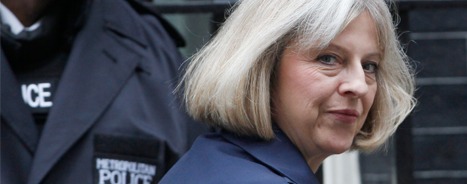Home Secretary Introduces Bill to Help Combat Terrorism

Home Secretary Theresa May argues the “time is right” for security and intelligence agencies to hold more powers to defend the UK.
The home secretary will reveal parts of the Counter Terrorism and Security Bill, which will be introduced to Parliament on Wednesday, in a speech at a counter-terrorism event in London.
According to the new bill UK-based insurance companies will be banned from paying terrorist ransoms. By preventing insurance companies from covering ransoms, the government hopes firms and families will be discouraged from paying kidnappers.
Ministers believe that paying ransoms encourages kidnapping and say Islamic State militants are taking hostages to fund their operations. The ban is one of several methods conceived in response to the terror threat. The UK’s terror threat level was raised from “substantial” to “severe” earlier this year in response to clashes in Iraq and Syria.
Other measures which make up the Counter Terrorism and Security Bill include:
- Allowing the cancellation of the passports of suspects who are overseas, so they can only return to the UK on the government’s terms
- Changes to TPIMs (Terrorism Prevention and Investigation Measures) to allow the authorities to force suspects to move to another part of the country
- Making it compulsory for public bodies like schools, colleges and prisons to work to prevent terrorism
- Forcing firms to hand details to police identifying who was using a computer or mobile phone at a given time
The Liberal Democrats praised the idea to give police powers to find out who was using a phone or computer at a certain time.
This ties in with Counter-terrorism Awareness Week where over 3000 police officers will inform the public on how they can prevent terrorism, more than 6,000 people at schools, universities, airports, shopping centres, cinemas and farms across the UK will be educated by counter-terror officers.
The Prevent strategy for instance will provide practical help to anyone drawn to terrorism.
Metropolitan Police Assistant Commissioner Mark Rowley, Association of Chief Police Officers’ national policing lead for counter-terrorism, said, “So far this year, we have disrupted several attack plots and made 271 arrests but the eyes and ears of law enforcement and other agencies alone cannot combat the threat.”
The danger of violent extremists has “evolved” and is no longer a problem stemming only from countries like Iraq and Afghanistan. “Now, they are home grown, in our communities, radicalised by images and messages they read on social media and prepared to kill for their cause.” he said.


































